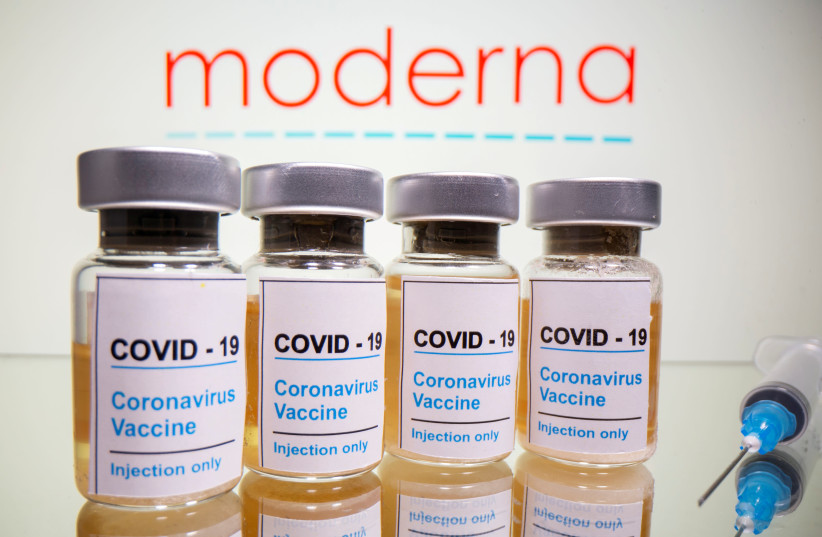
Moderna Inc.’s COVID-19 vaccine appeared set for regulatory authorization this week after US Food and Drug Administration staff endorsed it as safe and effective in documents released Tuesday.An FDA decision on whether to issue a so-called emergency use authorization for the Moderna vaccine will be made after a panel of outside advisers meets Thursday. The FDA typically follows the advice of the panel, but is not required to do so.Israel ordered six million Moderna vaccines — enough to inoculate three million people.Israel was one of the first countries to sign for the company’s vaccine candidate and the first doses of the vaccine are expected to arrive even before the end of the year.“We appreciate the confidence the Government of Israel and the Health Ministry has shown in mRNA-1273, our COVID-19 vaccine candidate,” Moderna CEO Stéphane Bancel said earlier this month when Israel increased its order.The company’s chief medical officer is Israeli-born Tal Zaks.Moderna’s is the second vaccine the FDA has considered, behind one from Pfizer Inc. and Germany’s BioNTech, which was authorized last week. Hospitals in the US began giving the Pfizer/BioNTech shots on Monday.The New York Times, citing unnamed sources, reported that the FDA decision on Moderna’s vaccine would be on Friday. The FDA did not immediately respond to a request for comment on the Times report.FDA staff said in documents prepared for that meeting that a two-dose regimen of Moderna’s vaccine was highly effective in preventing confirmed cases of COVID-19 and did not raise any specific safety issues in adults over the age of 18.Moderna released data in documents supporting previous statements that the vaccine may prevent some asymptomatic infections of COVID-19.It said 38 trial participants in the placebo arm of its trial tested positive for COVID-19 without exhibiting symptoms at the time of their second dose – nearly triple the number in the vaccine arm of the trial.Both Moderna and Pfizer designed their late-stage trials to show that their vaccines were capable of preventing more significant forms of COVID-19, in the hope that the shots could prevent hospitalizations and deaths.But preventing asymptomatic infection is also important and could reduce the chances of vaccinated people infecting the unvaccinated, further stemming the spread of the disease.The FDA said there appeared to be some protection for trial participants after the first dose of Moderna’s vaccine, which is given in two shots, with 28 days between inoculations, but there was not enough information on longer-term protection.It said vaccine efficacy was 80.2% in participants who only received one dose at the time of the interim analysis, which was based on data collected as of November 7.But the FDA said it could not draw a conclusion because the numbers of participants and time of observation were limited, and there was no single-dose arm in the 30,000-person trial.Moderna said trial participants, half of whom received a placebo, may request to find out if they had a placebo or the vaccine so that they can get either the vaccine or another vaccine potentially available outside of the trial.The FDA staff said serious side effects in the trial of the vaccine represented medical events that occur in the general population at a similar frequency as observed in the study.The FDA did flag the possibility that the vaccine was contributing to Bell’s palsy, a type of facial paralysis also reported by participants in the Pfizer trial.Moderna reported four cases of Bell’s palsy, including three among people who had the vaccine and one in the placebo group. The company said three of the cases had been resolved.Although the FDA said the trial participants with Bell’s palsy had predisposing factors, the “potential contribution of the vaccine to the manifestations of these events of facial palsy cannot be ruled out.”Jerusalem Post Staff contributed to this report.
Source
Related posts:
Views: 0
 RSS Feed
RSS Feed

















 December 16th, 2020
December 16th, 2020  Awake Goy
Awake Goy  Posted in
Posted in  Tags:
Tags: 
















